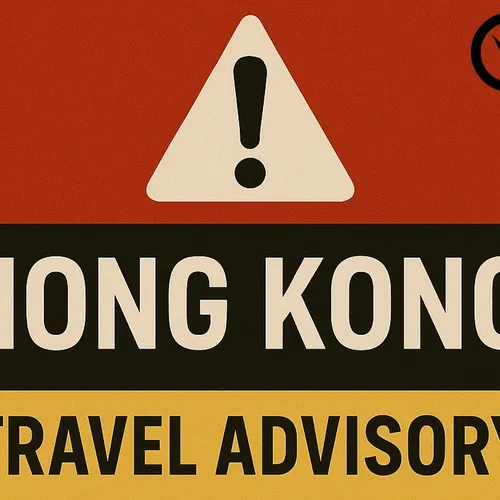Hong Kong Travel Advisory: Safety Tips and Legal Considerations for Visitors in 2024
- Author
- Quiet. Please
- Published
- Wed 26 Mar 2025
- Episode Link
- https://www.spreaker.com/episode/hong-kong-travel-advisory-safety-tips-and-legal-considerations-for-visitors-in-2024--65142093
Hong Kong remains a popular destination, but travelers should exercise increased caution due to ongoing concerns about the arbitrary enforcement of local laws. The U.S. Department of State currently advises exercising increased caution when visiting Hong Kong, citing potential risks related to the National Security Law implemented in 2020 and the more recent Safeguarding National Security Ordinance enacted in March 2024.
These laws have significantly impacted civil liberties in Hong Kong, with authorities having broad powers to interpret and enforce vaguely defined offenses such as secession, subversion, terrorism, and collusion with foreign entities. The U.S. State Department warns that even peaceful demonstrations or activities perceived as critical of the government could result in criminal charges.
Travelers should be aware that these laws can apply to foreign nationals within Hong Kong and even to individuals outside its borders. This means that comments or actions made before entering Hong Kong could potentially lead to legal consequences upon arrival.
Despite these concerns, Hong Kong remains a relatively safe destination in terms of crime. The Hong Kong Tourism Board reports that the city has a low crime rate, though visitors should still exercise normal precautions, especially in crowded areas and when using public transportation.
For those planning to visit, it's crucial to stay informed about current events and avoid participating in or being near demonstrations. The Hong Kong Observatory provides regular updates on weather conditions, including typhoon warnings, which are most common from July through September.
Public transportation in Hong Kong continues to be efficient and reliable. The Mass Transit Railway (MTR) remains a popular and safe option for getting around the city. Taxis and ride-sharing services are also widely available, though it's advisable to use only officially marked taxis or trusted ride-sharing apps.
Health-wise, Hong Kong has robust medical facilities, but travelers are advised to have comprehensive travel insurance. The Centers for Disease Control and Prevention recommends being up-to-date on routine vaccinations before traveling to Hong Kong.
Air quality can vary significantly in Hong Kong, especially during summer months. Travelers with respiratory conditions should monitor air quality reports and take necessary precautions.
As we approach 2025, Hong Kong is expected to continue focusing on eco-friendly and immersive cultural tourism experiences. The city is likely to offer more technologically advanced and seamless experiences for visitors, reflecting global travel trends.
Remember that entry requirements and health protocols can change rapidly. Before traveling, check the latest information from official sources such as the Hong Kong government's website and your country's foreign affairs department.
While Hong Kong offers unique experiences blending Eastern and Western cultures, travelers should remain vigilant, respect local laws, and stay informed about the current situation to ensure a safe and enjoyable visit.
